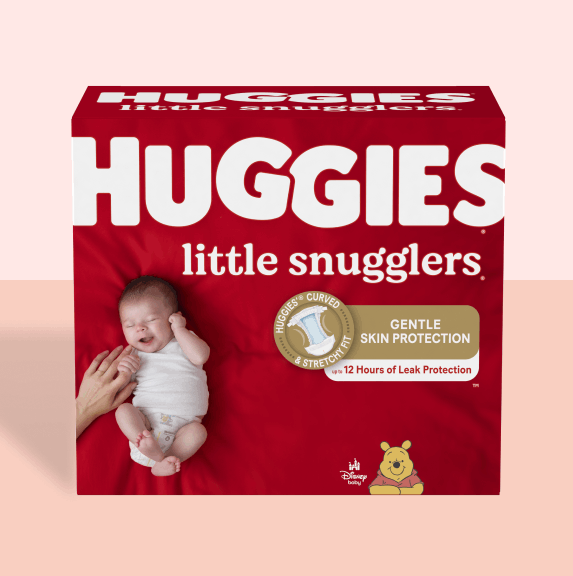Growth and development at 15 months old
This is the age when your toddler will be fascinated by different textures and the appearance of items. They may develop an attachment for a silky or furry piece of clothing and always want it with them. It is normal for young children to become attached to a transitional object at this age. If your child is, avoid interpreting this as a sign of future emotional problems.
Expect lots of chatter and talk this month. Some words may be very clear such as “mama,” “dada,” “no,” “yes,” and even sibling names. Your toddler's speech will still be restricted to syllables, especially those containing lots of nouns and parts of words rather than entire words. Girls tend to talk earlier than boys and are more vocal and chattier.
Play and interaction at 15 months old
Bath time is a great opportunity for play. You may find it difficult to get your toddler into the bath but once there, it becomes hard to get them out! Water can be a source of endless fascination for toddlers, and you'll find they are drawn to it. At this age your toddler will not have any concept of danger or risk so you will have to watch them very carefully whenever they are around water. Toddlers can drown in very small amounts, so make sure they cannot access buckets, pet water bowls, baths, or water containers as well as pools, rivers, lakes, or any other place where there are large amounts of water.
Help your toddler to build on their social skills this month by joining a playgroup, taking them to the park, or having a little friend over to play. Although they are unlikely to play with each other, just having another little person to entertain them can be fun. It won’t be until your toddler is older that they will stop playing alongside each other and play interactively.
What you can expect at 15 months old
Get into the habit of always carrying snacks and drinks when you go out. If your toddler's blood sugar level begins to drop, they will be difficult to reason with. Healthy snacks like fruit, sandwiches, and crackers are portable and will sustain their appetite until the next main meal. Buy a supply of small containers which will fit comfortably in your bag.
As your toddler explores their new independence and autonomy this month, expect to hear the word “no” more often. When accompanied by a firm shake of their head, they will certainly get their point across. Think about your own language when you are communicating with them and try, when possible, to be encouraging rather than always telling them what not to do.
Food and nutrition
Give your toddler lots of opportunity to chew their food and use their molars for the purpose they are intended. If they aren’t happy about certain foods, especially lumpy foods, continue to offer them anyway. Lots of toddlers continue to spit out certain foods long after they are at the age when they can chew perfectly well. Hunger will persuade them to try new foods and accept unfamiliar tastes and textures.
Your 15-month-old may want to snack frequently rather than eat large quantities at mealtimes. This is common but can be impractical for busy families who thrive on routines. If your toddler is having 3 main meals and 2 healthy snacks, they will meet all their nutritional requirements. Even if a snack seems small, it can still make a big difference to a toddler's appetite. Try to plan their meals and be on time offering them. Toddlers tend to like to eat earlier than older children and adults. A lunch time of 11AM or 11:30AM and dinner at around 5PM is ideal for this age group.
Keeping Your toddler healthy at 15 months old
Boosting your toddler's immune system to help insulate them against becoming sick will help. Quality sleep, a healthy diet, rest, and minimizing their exposure to other sick children will all help. Encourage them to wash their hands before eating and at bedtime. Invest in a toddler stepping stool to ease their access to the sink and change drying towels frequently.
General tips
- Keep your toddler busy in the afternoons and encourage them to play out in the yard. This will help tire them out and fall asleep more easily at night. Swings, sandboxes, balls, slides, and bikes are all great for this age group. They will want toys and climbing equipment which involve their whole body, not just their hands.
- Follow a similar, predictable, and stable daily routine when you can. Your 15-month-old will thrive on the security of knowing how each day is likely to unfold. Although this can be boring for their parents, it does wonders for toddlers.
- Sing songs, play silly games, read books, and have fun with your toddler each day. This is a delightful age, full of discovery and charm. Give your toddler lots of positive feedback for being so interested in what is going on in their little world.
- Remember to always strap your toddler securely into their car seat every time you travel. They may learn how to undo their restraint this month. If so, pull over, make sure they are buckled in, and proceed. Distract them with some toys or have snacks on hand to offer them. Have a car rule that the car does not move unless everyone is correctly strapped into their seats. This includes adults, too!
The information of this article has been reviewed by nursing experts of the Association of Women’s Health, Obstetric, & Neonatal Nurses (AWHONN). The content should not substitute medical advice from your personal healthcare provider. Please consult your healthcare provider for recommendations/diagnosis or treatment. For more advice from AWHONN nurses, visit Healthy Mom&Baby at health4mom.org.









